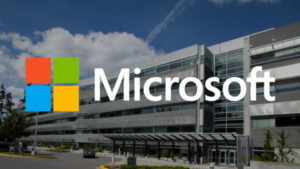A major datacenter project at Microsoft could lead to faster and more relevant search results on the company’s 5-year-old search engine, Bing. The Catapult project is a collaboration between Microsoft researchers and the Bing team that was presented Monday at an industry conference on computer architecture. A Microsoft blog post explains some of Catapult’s technical […]
A major datacenter project at Microsoft could lead to faster and more relevant search results on the company’s 5-year-old search engine, Bing.
The Catapult project is a collaboration between Microsoft researchers and the Bing team that was presented Monday at an industry conference on computer architecture. A Microsoft blog post explains some of Catapult’s technical aspects, including the use of field-programmable gate arrays (FPGAs) on Microsoft’s servers. It also details the improvements that Microsoft has seen in early testing.
The potential impacts on Bing are what matter most to us, though, and Microsoft makes it sound like those impacts could be significant. Here are a couple quotes:
Microsoft Research chief Peter Lee:
“Going into production with this new technology will be a watershed moment for Bing search,” he says. “For the first time ever, the quality of Bing’s page ranking will be driven not only by great algorithms but also by hardware — incredibly advanced hardware that can be made more highly specialized than anything ever seen before at datacenter scale.”
Derek Chiou, a Bing hardware architect:
“The partnership between Doug and his team at Microsoft Research and Bing has been fantastic and has resulted in significant results that will have real impact on Bing.
“The potential benefits go beyond simple dollars. To give some examples, Bing’s ranking could be further enhanced to provide an even better customer experience, power could be saved, and the size of the datacenters could be reduced.”
In essence, they’re saying that Catapult could boost Bing’s technical capabilities, making its search faster and more efficient, which would also improve Bing’s ranking relevancy — i.e., “the quality of Bing’s page ranking.”
Search speed has long been a battle point between Google and Bing. When the latter launched in 2009, Bing called itself a “decision engine” and told consumers they’d spend less time searching and more time doing if they switched. Google has been pushing to make the web faster at least as long, and the company is known to have a maniacal fixation on making that timestamp on its search results — the one that shows how long it took for the page to load — as low as possible.
Perhaps, if the Catapult experiment is as successful as Microsoft thinks it will be, Bing may someday start showing how quickly it can display a page of search results, too. We’ll start to find out next year: Microsoft says it’ll begin to use the new technology in one customer datacenter in early 2015.




